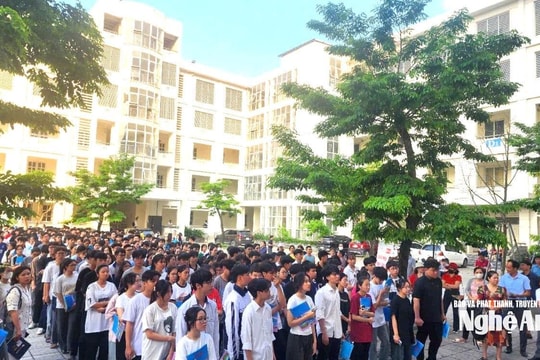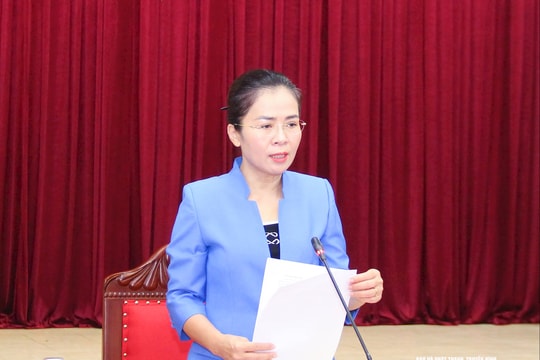Pedagogy students who work in the right field will have their tuition loans erased.
Pedagogical students are allowed to borrow pedagogical credit to pay tuition and living expenses for the entire course. After graduation, if they work in the education sector for a sufficient period of time as prescribed, this loan will be forgiven.
That is the content of the amendment to the Law on Education regarding the tuition exemption policy for students and pedagogical students to be discussed by the National Assembly in the next session.
The Ministry of Education and Training said that currently, due to changes in the labor market's needs, the number of pedagogical students nationwide who graduate without a job or work in the wrong field of pedagogy is still high, and there is a situation of working in the wrong field or profession, causing a huge waste of human resources invested in education.
Therefore, the draft does not stipulate tuition exemption for pedagogical students but instead uses a pedagogical credit loan policy: pedagogical students are allowed to borrow pedagogical credit to pay tuition and living expenses during the entire course, and enjoy scholarship policies to encourage learning, tuition exemption and reduction policies, and prescribed social subsidies.
After graduation, if you work in the education sector for a sufficient period of time as prescribed, you will not have to repay the pedagogical credit loan.
 |
| Pedagogy students are given loans to pay their tuition. If they graduate and work in the right field, the loan will be forgiven. |
The Ministry of Education and Training said that this new policy brings a number of advantages: Students can borrow credit to pay the full tuition fee and have enough living expenses to study with peace of mind. After graduating and working in the teaching profession, the loan will be forgiven; so if after graduating, students still do not have to pay tuition fees.
For teacher training schools, students pay full tuition to the school according to the collection rate, the school has a direct source of income to proactively cover costs.
According to the leader of the Ministry of Education and Training, the State will provide support to the right subjects, there will no longer be a situation of financial support for those who are trained in pedagogy but graduate and work in other professions, making the support policy ineffective.
Schools are allowed to set their own tuition fees.
The draft Law on Education has also amended the current regulations on tuition fees. Accordingly, it allows non-public educational institutions to proactively set tuition fees to ensure cost recovery.
Public educational institutions are provided with high-quality educational services and proactively set appropriate tuition fees.
At the same time, to limit the situation of non-public educational institutions and high-quality models arbitrarily increasing tuition fees, the Draft adds regulations requiring these educational institutions to publicly disclose training costs, tuition fees and tuition collection roadmap for the entire course and level of education.
The Ministry of Education and Training said that previously, tuition fees were a type of fee belonging to the state budget. The mechanism for collecting, managing and using tuition fees was implemented according to the Ordinance on Fees and Charges. Accordingly, tuition fees must be recorded as state budget revenue and expenditure and must be paid to the state treasury for monitoring and management according to regulations.
However, in 2015, the National Assembly issued the Law on Fees and Charges, which removed tuition fees from the list of fees and charges managed by the State, and considered tuition fees as the price of educational and training services.
Accordingly, tuition fees are subject to the Law on Prices, and the mechanism for collecting and managing tuition fees is transferred to the service price mechanism according to the provisions of the Law on Prices and is calculated correctly and fully. Therefore, it is necessary to amend the regulations on tuition fees to comply with the Law on Prices.

.jpg)
.jpg)
.jpg)


.jpg)
.jpg)
